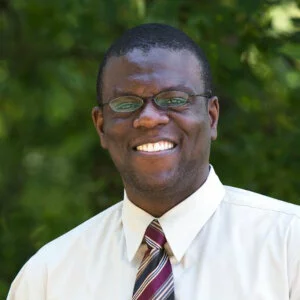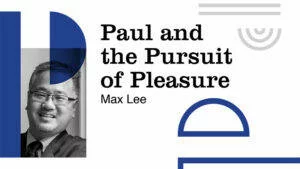Anyone who has talked to missionaries or has heard Christians from majority world cultures give their testimonies knows the experience. Such believers often have remarkable stories to share, supernatural encounters with God and with other spiritual entities: speaking in tongues, miraculous healings, exorcisms, witchcraft, you name it. Meanwhile, here you are, trained at a Western seminary where your professors drilled into you a respect for historical “distance” between the world of the biblical text and the world we live in today. A bizarre teaching indeed, if you asked Christians in other parts of the world like Brazil or Nigeria. After all, part of what drew them to the pages of Scripture was its picture of divine presence, a world teeming with spiritual forces, angels and demons, evil and magic, the very world they experience every day.
This prompts the question: Why? Why do Christians have such profoundly different experiences of the world and its relation to the unseen realm? Many believers have thought about this question plenty of times, and it can be a cliché trotted out whenever missionaries are in town or people are debating global Christianity. Nevertheless, how do we account for these discrepancies? What story should we tell?
Secularism and the Supernatural
That all depends. A typical African believer may think that Western believers have become thoroughly secularized and, like lambs to the slaughter, have bought into the naturalistic lies of the devil—that deep down, they don’t really believe that God acts miraculously as he did in canonical times past. Yet things were not always so. According to Charles Taylor, for example, people in Western society used to believe in an “enchanted” world,Name it and claim it, and all your wishes will come true! The irony is that the Prosperity Gospel is one of America’s most successful exports “the world of spirits, demons, and moral forces.”Charles Taylor, A Secular Age (Cambridge, MA: Harvard University Press, 2007), 26. But these days, Western Christians—especially non-charismatic ones—are often bewildered when they hear stories of the blind being healed or people rising from the dead; that is not surprising, for they tend to see the world through the same lens as non-Christians.
However, there is a rather different perspective, one that is more critical of non-Western testimonies to God’s supernatural provision. Many such Western Christians complain about the lack of theological depth in manifestations of Christianity in the majority world. They worry that some of these testimonies reflect the wayward teachings of the Prosperity Gospel, a sham doctrine that treats God like some genie in the bottle. Name it and claim it, and all your wishes will come true! The irony is that the Prosperity Gospel is one of America’s most successful exports, thanks to the Word of Faith teachings of Benny Hinn, Kenneth Copeland, Kenneth Hagin, Morris Cerullo, and their misled acolytes.
Those outside the Christian faith will shake their heads at the hopeless credulity of believers. If we would only accept the world as described by our best sciences, then we would see that all so-called miracles have a purely naturalistic explanation. The “supernatural” is epiphenomenal, a mirage in the desert. Alleged healings, demonic possessions, and the like, are all consistent with psychosomatic behavior, the placebo effect, or some such natural process. In the twenty-first century, there is simply no need to invoke gods and demons. So they argue.
This sketch simplifies a complex story. Nevertheless, profound theological questions lurk below the surface, questions about the work of the Holy Spirit, divine providence, demonology, the nature of reality, and the limits of science (just to name a few). In order to help us untangle this muddle, we have invited five Christian thinkers to answer the million-dollar question: Why do Christians outside the West experience far more instances of miraculous divine activity than their brothers and sisters in the West?
In a classic article, John Mbiti chided Western theologians for living in a bubble: “Theology should strain its neck to see beyond the horizons of our traditional structures, beyond the comforts of our ready-made methodologies of theologizing.”John Mbiti, “Theological Impotence and the Universality of the Church,” in Mission Trends No.3, ed. Gerald Anderson and Thomas Stransky (Grand Rapids, MI: Eerdmans, 1976), 9. Theology, he went on to say, “should be with the Church where it is, rubbing shoulders with human beings whose condition, outlook, concerns, and world views are not those with which we are familiar.” That’s a good word (whatever one might think of Mbiti’s work in general). This Areopagite hopes to clarify how God’s presence in the world and in our lives relates to the scientific picture many take for granted.







Comments
Be the first one to make a comment!